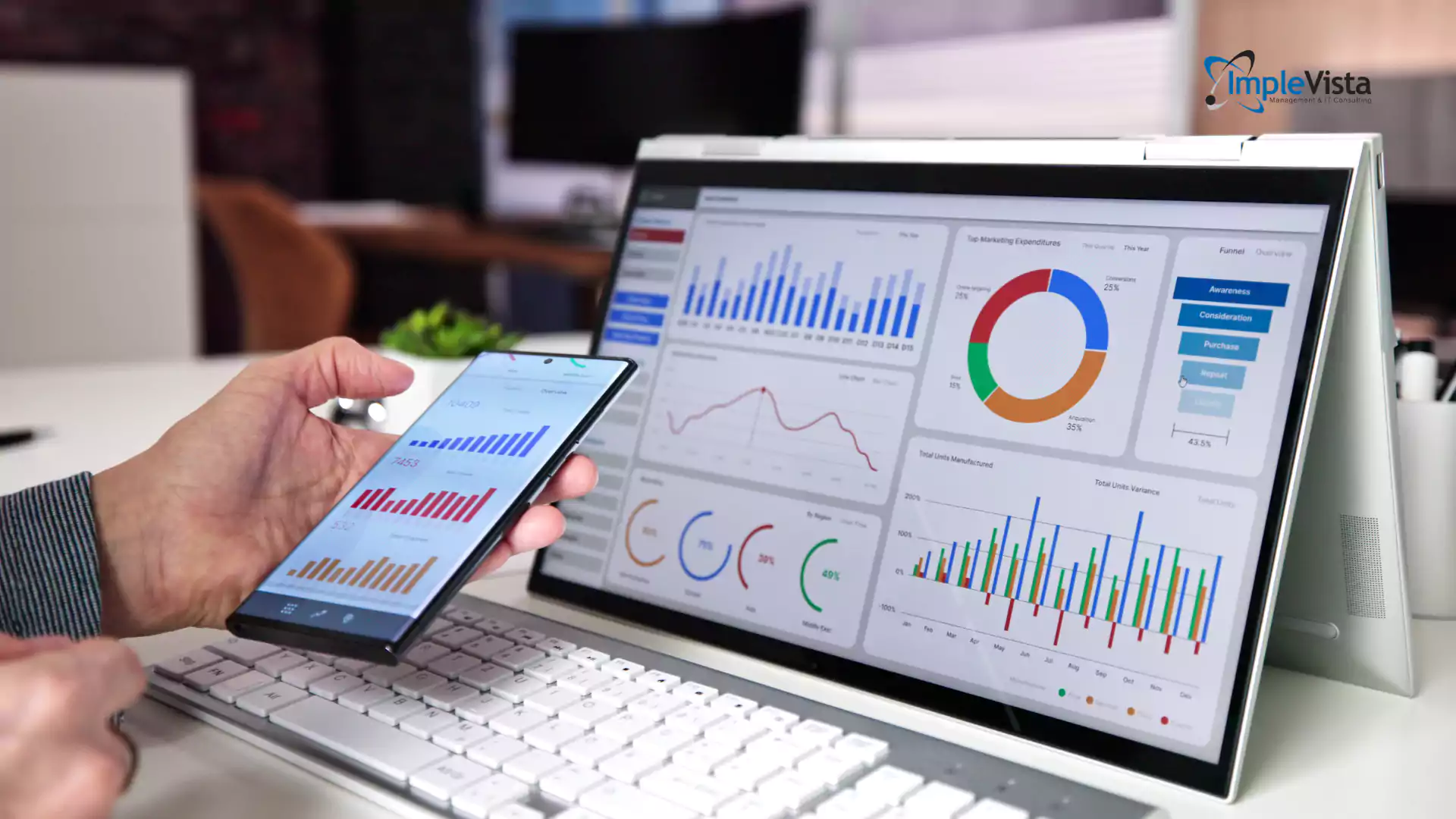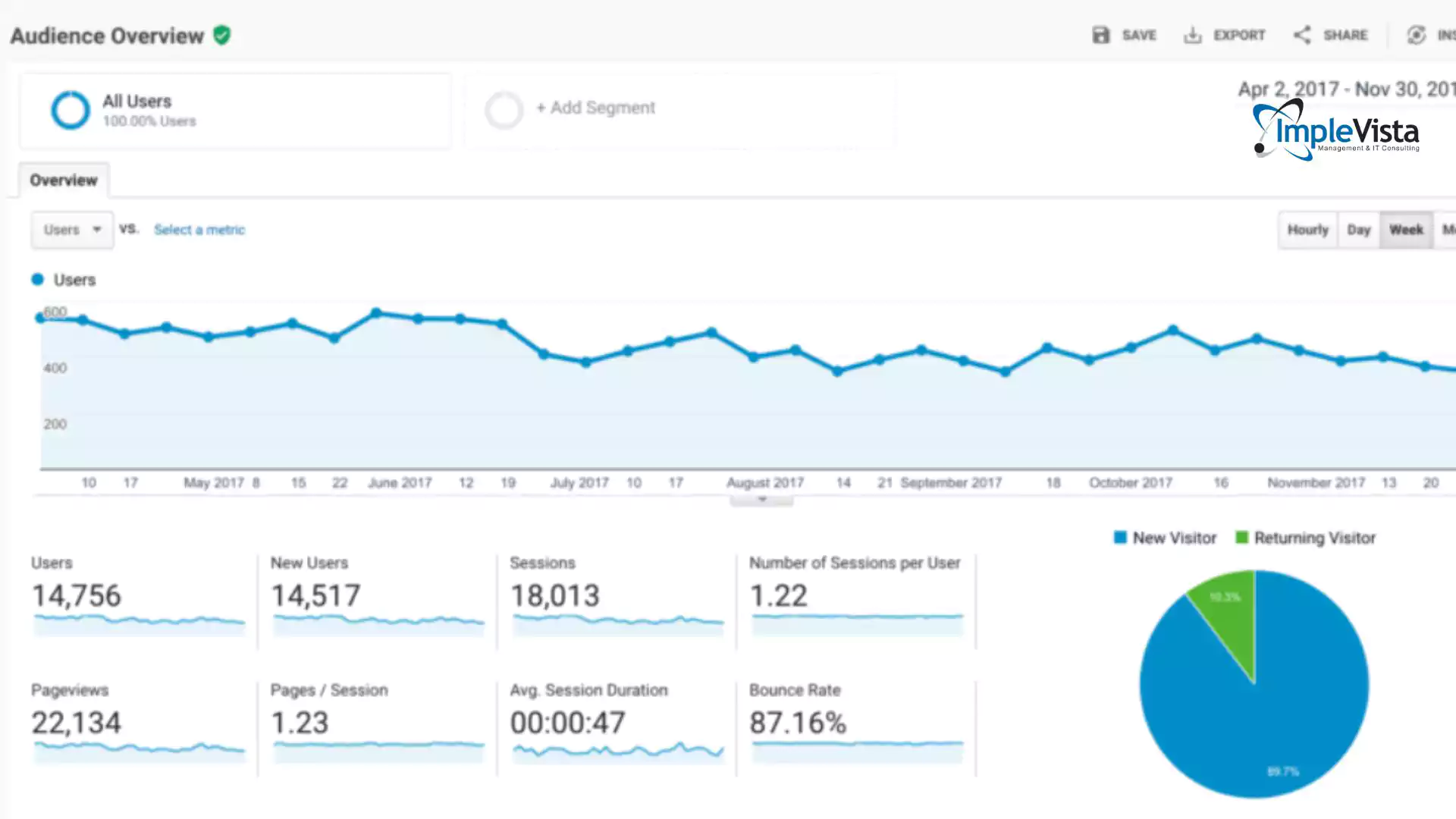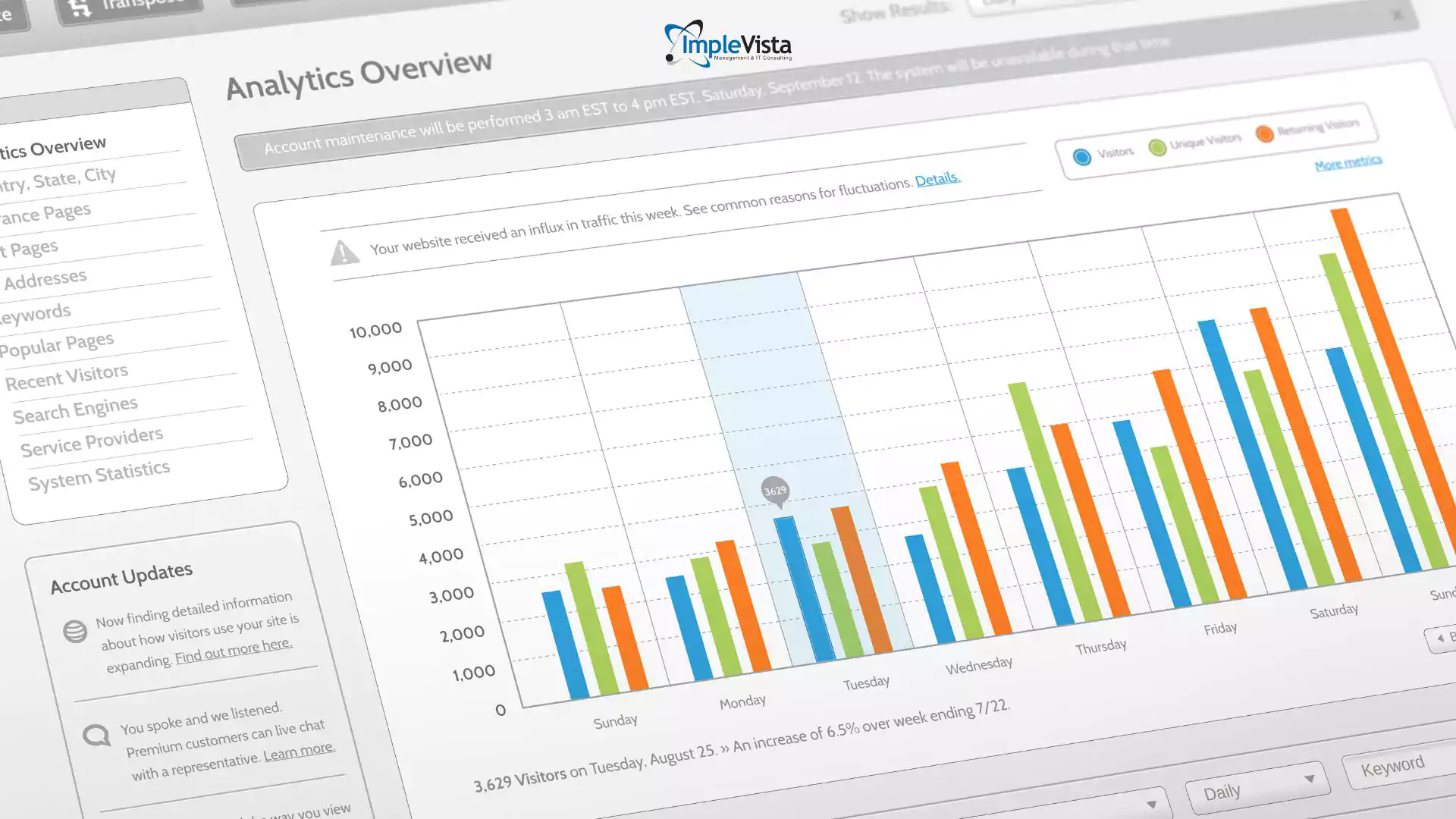In the fast-evolving digital landscape of Bangladesh, businesses are increasingly realizing the value of data analytics to drive strategic decisions and improve their Marketing ROI (Return on Investment). This article delves into the role of data analytics in digital marketing and offers actionable insights on how businesses in Bangladesh can leverage data to boost ROI.
What is Data Analytics in Digital Marketing?
Data analytics in digital marketing involves collecting, analyzing, and interpreting data to understand customer behavior, measure campaign effectiveness, and optimize marketing strategies. It empowers businesses to transform raw data into actionable insights that drive decision-making.
Introduction to Data Analytics in Marketing
Data analytics refers to the systematic process of analyzing raw data to derive actionable insights. In marketing, it involves examining data generated from campaigns, customer interactions, and other touchpoints to optimize strategies and achieve specific goals.
The Importance of Data Analytics
For businesses in Bangladesh, where competition is growing across sectors, data analytics offers the ability to:
- Understand customer behavior.
- Optimize marketing campaigns in real-time.
- Allocate budgets effectively to high-performing channels.
Understanding Marketing ROI and Its Importance
What is Marketing ROI?
Marketing ROI measures the return a company gains from its marketing investment. It’s a critical metric for assessing the success of campaigns and ensuring resources are used efficiently.
Why Focus on Marketing ROI in Bangladesh?
In Bangladesh’s dynamic market, achieving a positive ROI ensures sustainable growth. Businesses need precise targeting and optimized strategies to compete effectively, making analytics indispensable.
Why Data Analytics is Crucial for Digital Marketing in Bangladesh
1. Navigating a Competitive Market
Bangladesh’s digital ecosystem is growing rapidly, with increasing competition among e-commerce platforms, startups, and traditional businesses going digital. Data analytics helps businesses identify opportunities and stay ahead of the curve.
2. Optimizing Marketing Investments
Budget constraints are common in Bangladeshi businesses, especially SMEs. Analytics ensures that every marketing dollar is spent effectively by focusing on high-performing channels and strategies.
3. Personalized Marketing
Consumers in Bangladesh are becoming more discerning. Data analytics allows businesses to create personalized campaigns that resonate with their target audience, increasing engagement and conversions.
The Role of Data Analytics in Digital Marketing
Data analytics plays a vital role in every aspect of digital marketing, from strategy development to campaign execution and performance evaluation.
1. Audience Insights
- Segmentation: Analytics tools segment audiences based on demographics, interests, and behaviors, helping businesses tailor messages to specific groups.
- Customer Journey Mapping: Track how customers interact with your brand across multiple touchpoints to enhance the overall experience.
2. Campaign Optimization
- Real-Time Monitoring: Use analytics to monitor campaign performance in real-time, allowing for quick adjustments.
- A/B Testing: Compare different versions of ads, emails, or landing pages to determine which performs better.
3. Predictive Analytics
- Analyze historical data to predict future trends, such as customer buying patterns or seasonal demand spikes, enabling proactive marketing strategies.
4. Measuring ROI
- Attribution Modeling: Understand which marketing channels are driving the most conversions to allocate resources efficiently.
- KPI Tracking: Monitor key performance indicators (KPIs) such as click-through rates (CTR), cost per acquisition (CPA), and customer lifetime value (CLV).
Steps to Leverage Data Analytics for Better Marketing ROI
1. Set Clear Goals
Define measurable objectives such as increasing website traffic, boosting social media engagement, or driving online sales.
2. Choose the Right Tools
Use analytics platforms suited to your business needs, such as:
- Google Analytics for website tracking.
- Facebook Insights for Social Media Performance.
- HubSpot for inbound marketing.
3. Collect Quality Data
- Integrate data from multiple sources, including websites, social media platforms, email campaigns, and customer surveys.
- Ensure data accuracy and consistency.
4. Analyze and Interpret
Identify trends, correlations, and patterns that reveal what’s working and what needs improvement. For example:
- Which product categories are most popular?
- What time of day sees the highest customer engagement?
5. Optimize Campaigns Based on Insights
Use the insights gathered to refine campaigns.
- Adjust ad budgets to prioritize high-performing channels.
- Tailor messaging to align with customer preferences.
6. Test and Iterate
- Conduct A/B tests regularly to refine strategies.
- Continuously monitor and adapt to ensure long-term success.
Tools for Data Analytics in Digital Marketing
- Tracks website performance, user behavior, and conversion rates.
- Offers detailed reports on traffic sources, demographics, and user engagement.
2. Tableau
- A data visualization tool that simplifies the interpretation of complex data sets.
3. SEMrush
- Helps analyze SEO performance, keyword rankings, and competitor strategies.
- Provides insights into the performance of social media campaigns, including reach, engagement, and conversions.
5. HubSpot
- An all-in-one marketing tool for tracking email campaigns, lead generation, and sales performance.
Real-World Applications in Bangladesh
A leading e-commerce platform in Bangladesh used predictive analytics to identify peak shopping times, leading to a 25% increase in sales during promotions.
2. Retail Optimization
A retail chain leveraged footfall analytics to determine the best locations for new stores, boosting overall sales by 30%.
A Dhaka-based fashion brand used data analytics to identify its most engaging content types, leading to a 50% improvement in Instagram engagement rates.
Challenges in Implementing Data Analytics
Despite its benefits, businesses in Bangladesh may face challenges in adopting data analytics.
1. Lack of Expertise
- Many businesses lack trained professionals to manage and analyze data.
Solution: Invest in training or partner with experienced analytics firms.
2. Limited Budgets
- Smaller businesses may struggle to afford advanced analytics tools.
Solution: Start with free or affordable tools like Google Analytics and scale up as needed.
3. Data Privacy Concerns
- Handling customer data responsibly is crucial to maintaining trust.
Solution: Ensure compliance with data protection regulations, such as GDPR.
Measuring Marketing ROI with Data Analytics
1. Track Key Metrics
Focus on metrics that align with your business goals, such as:
- Conversion rates.
- Cost per click (CPC).
- Customer lifetime value (CLV).
2. Use Attribution Models
Attribution models help identify which channels and touchpoints contribute the most to conversions.
3. Monitor and Report
- Regularly review performance reports to identify trends and areas for improvement.
- Share insights with stakeholders to align strategies.
10 Ways Data Analytics Can Help You Unlock Your Marketing ROI
In today’s competitive business environment, data analytics has become an indispensable tool for optimizing marketing strategies and achieving a higher Return on Investment (ROI). By analyzing data effectively, businesses can make informed decisions that drive success. Below are 10 impactful ways data analytics can help you unlock your marketing ROI.
1. Identify Your Target Audience
Understanding your target audience is critical to any marketing effort. Data analytics enables businesses to:
- Segment customers based on demographics, interests, and behaviors.
- Analyze purchase history and online interactions to create detailed buyer personas.
With these insights, you can design personalized campaigns that resonate with your audience and drive conversions.
2. Optimize Marketing Campaigns in Real-Time
Analytics tools provide real-time data on campaign performance, allowing you to:
- Adjust budgets and strategies based on metrics like click-through rates and cost per conversion.
- Identify underperforming ads and tweak their messaging or design.
This real-time optimization ensures that marketing spend is allocated efficiently, maximizing ROI.
3. Enhance Customer Experience
Data analytics helps you map the customer journey, identifying pain points and opportunities for improvement. By enhancing touchpoints—whether on your website, social media, or email—you can:
- Boost engagement.
- Reduce bounce rates.
- Improve overall satisfaction.
A positive customer experience often translates to higher retention rates and increased revenue.
4. Measure the Effectiveness of Marketing Channels
Not all marketing channels yield the same results. Analytics helps businesses determine:
- Which channels drive the most traffic and conversions.
- The ROI for each platform (e.g., Facebook, Google Ads, organic search).
This insight enables you to prioritize high-performing channels and allocate resources accordingly.
5. Predict Future Trends with Predictive Analytics
By analyzing historical data, predictive analytics can forecast:
- Customer purchasing patterns.
- Market trends and seasonal demands.
This allows businesses to stay ahead of the competition and plan proactive marketing strategies that maximize ROI.
6. Personalize Marketing Efforts
Consumers expect personalized experiences. Data analytics makes it possible to:
- Tailor recommendations based on past behavior.
- Send targeted emails or ads that align with customer preferences.
Personalized marketing not only boosts engagement but also significantly improves conversion rates.
7. Improve Budget Allocation
With data-driven insights, businesses can allocate marketing budgets more effectively by:
- Investing in high-performing campaigns and channels.
- Reducing spend on strategies that don’t yield results.
This ensures that every dollar is spent on initiatives that deliver measurable ROI.
8. Enhance Content Strategy
Content marketing is a powerful tool, but only if it aligns with audience needs. Data analytics can help identify:
- The types of content (blogs, videos, infographics) that perform best.
- Topics that attract the most engagement.
With these insights, you can create a content strategy that drives traffic, engagement, and conversions.
9. Track and Refine KPIs
Key Performance Indicators (KPIs) are essential for measuring marketing success. Data analytics allows you to:
- Monitor KPIs like cost per acquisition (CPA), customer lifetime value (CLV), and conversion rates.
- Identify areas for improvement and refine strategies to meet your goals.
This continuous tracking ensures that marketing efforts remain aligned with business objectives.
10. Foster Long-Term Customer Loyalty
Acquiring new customers is more expensive than retaining existing ones. Data analytics helps businesses:
- Understand what drives customer loyalty.
- Develop retention strategies like loyalty programs or exclusive offers.
By focusing on existing customers, you can improve lifetime value and boost ROI over the long term.
Data analytics is a game-changer for businesses aiming to maximize their Marketing ROI. From identifying target audiences to optimizing campaigns and fostering customer loyalty, analytics provides actionable insights that drive success.
Embrace the power of data analytics today to unlock new opportunities, refine your marketing strategies, and achieve sustainable growth.
Case Studies: Success Stories from Bangladesh
1. E-commerce Growth Through Data Analytics
A Bangladeshi e-commerce platform increased sales by 30% by analyzing customer purchasing patterns and tailoring product recommendations.
2. Improved Ad Efficiency for a Dhaka Startup
A local startup reduced its ad spend by 20% while boosting lead generation by analyzing channel performance and reallocating budgets accordingly.
Common Challenges and How to Overcome Them
| Challenge | Solution |
| Lack of Skilled Personnel | Train employees or hire experienced analysts. |
| Limited Access to Quality Tools | Start with free or low-cost tools like Google Analytics. |
| Data Privacy Concerns | Comply with international standards like GDPR. |
FAQs
1. How can small businesses in Bangladesh use data analytics?
Answer: Small businesses can start with basic tools like Google Analytics and Facebook Insights to track website and social media performance.
2. What are the most critical metrics for measuring marketing ROI?
Answer: Key metrics include:
- Cost per lead (CPL).
- Conversion rates.
- Customer acquisition cost (CAC).
3. How does data analytics improve customer retention?
Answer: By analyzing customer behavior, businesses can identify trends that lead to churn and implement strategies to retain their customers.
4. Are analytics tools expensive?
Answer: Not all analytics tools are costly. Many offer free or affordable plans for startups and SMEs.
5. What industries in Bangladesh benefit the most from data analytics in marketing?
Answer: Industries such as e-commerce, retail, telecommunications, banking, and hospitality greatly benefit from data analytics. For example, e-commerce platforms use it to optimize product recommendations, while banks leverage analytics to enhance customer segmentation and offer tailored financial solutions.
6. How does data analytics help in understanding customer behavior?
Answer: Data analytics tracks user interactions, such as website visits, click patterns, and purchase history, to identify customer preferences and behaviors. This information enables businesses to create targeted marketing campaigns and improve customer experiences.
7. Is it possible to implement data analytics without technical expertise?
Answer: Yes, many user-friendly tools like Google Analytics, HubSpot, and Facebook Insights offer intuitive interfaces that require minimal technical expertise. Businesses can partner with specialized agencies like Digital Implevista for more advanced analytics.
8. How can data analytics improve email marketing campaigns?
Answer: By analyzing metrics such as open rates, click-through rates, and conversion rates, businesses can identify what resonates with their audience. Data analytics also helps segment email lists for personalized content and optimize send times for better engagement.
9. What are some free analytics tools suitable for Bangladeshi businesses?
Answer: Free tools like Google Analytics, Google Data Studio, Facebook Insights, and Zoho Analytics are excellent for startups and SMEs in Bangladesh. These tools provide robust features to track performance and gain actionable insights.
10. How does data analytics contribute to long-term business growth?
Answer: By continuously analyzing and adapting to market trends, data analytics helps businesses identify new opportunities, improve customer loyalty, and optimize resource allocation. Over time, these practices lead to sustained growth and higher ROI.
Data analytics is revolutionizing digital marketing in Bangladesh, enabling businesses to make data-driven decisions that boost ROI. By leveraging analytics tools, interpreting insights, and refining strategies, businesses can achieve measurable success in an increasingly competitive market.
Digital Implevista is your trusted partner in Bangladesh, offering expert guidance on using data analytics to transform your marketing efforts.











